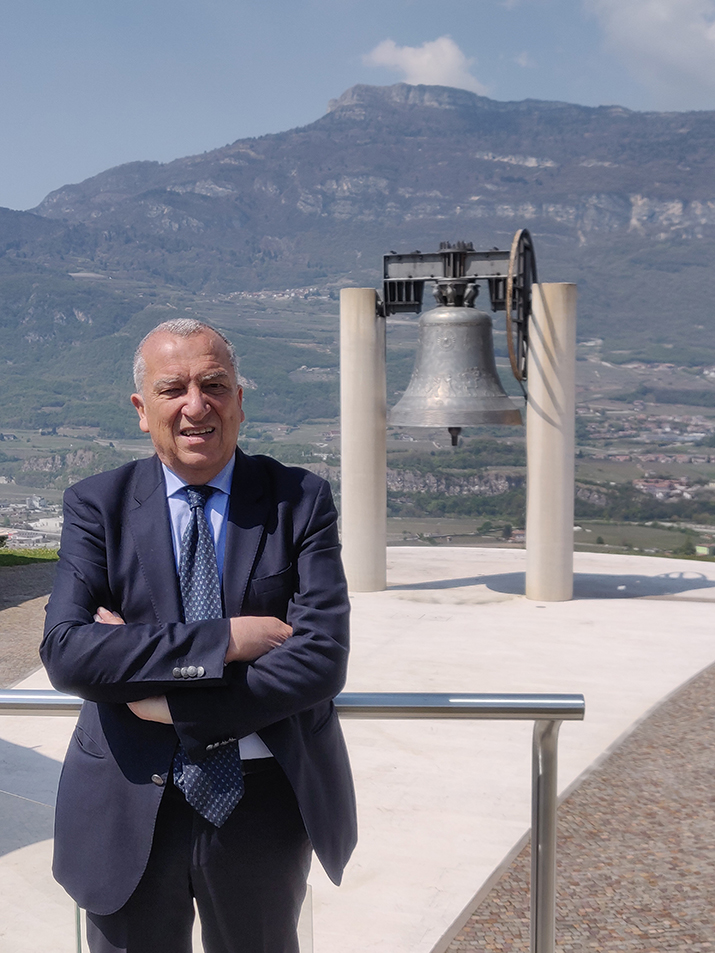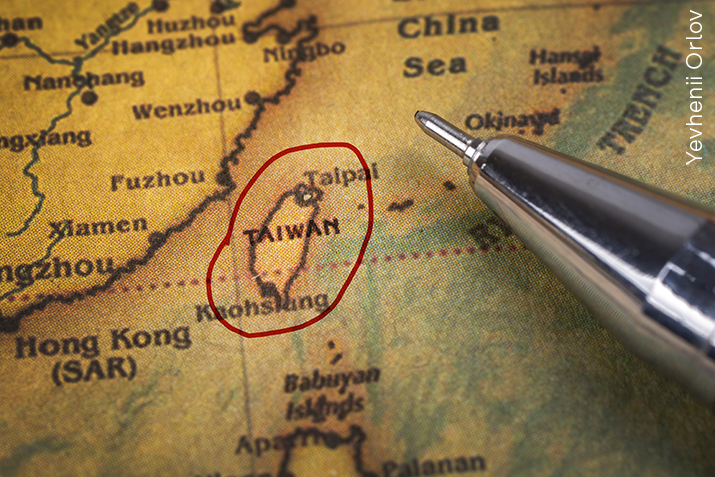Following the outbreak of hostilities in Ukraine, the more informed political analysts highlighted the existence, almost immediately, of a particularly attentive "observer" within the international community, interested in the progress of the conflict caused by the Russian invasion, as well as its consequences on a global scale. This is the People's Republic of China (PRC), currently the second largest economy in the world but waiting to overtake the United States, expected in the not-too-distant future. Over the last twenty years it has been characterized by unmatched levels of economic development even in an area, such as Asia, which is known to be very dynamic but moreover maintained through an iron political control, intolerant to any form of dissidence by the resident population.
The reason for Beijing's timely monitoring of military events in and around the Donbas is unambiguously identifiable with the situation in Taiwan, the island state of which the PRC has almost always claimed the "reconquest", although on close inspection it has never been a part of its national territory. As is well known, Formosa (name of Portuguese domination) was occupied in 1949 by the nationalist forces of General Chang Kai-shek, fleeing the continent because they were defeated by the Communist army in the civil war following the Second World War.
Aside from the obviously very different historical / geographical context, Beijing's claims do not differ much, on an "ideological" level from those put forward by President Putin on February 24. In other words, there is the plan to extend national sovereignty towards geographical areas considered one’s own domain and on the basis of considerations that have little or nothing to do with international legality. Independence (for Ukraine and the other former Soviet republics, in relation to the Russian Federation) or a limited condition of autonomy for that matter will not be accepted.
The latter is essentially the case of Taiwan, with which only very few states in the world have normal diplomatic relations (in this restricted group the most significant among them is certainly the Holy See). The idea of a "One China", identified in the People's Republic, is generally recognized in the international field.
It was since the 1970s, after President Ronald Reagan's historic visit to Beijing, that the vast majority of countries, including the United States and Europe, in fact began to consider the PRC (at that time admitted to the UN while Taipei was expelled) as the "institutional" Chinese interlocutor for all issues, from political to economic, from environmental to security, which represent the priorities of the multilateral agenda.
In consideration of their multiple and consolidated interests in the area of the so-called "Indo Pacific", the preservation of Taiwan's territorial integrity from possible threats from the continent constitutes an absolute must for the United States, which would otherwise result in an unfavourable and likely irreversible scaling down in its sphere of influence around the globe.
The 19 hours spent in Taiwan, between 2 and 3 August, by U.S. House Speaker Nancy Pelosi were part of an Asian trip that also took her to Singapore, Kuala Lumpur, Seoul and Tokyo. Her consequent meetings with President Tsai Ing-wen and other authorities on the island have been able to highlight the numerous and profound contradictions with great clarity, which had already emerged or were hitherto latent, in a Sino-American relationship destined to condition the destinies of humanity for decades to come whether we like it or not.
The Chinese reactions in their most blatant form consisted of air-naval exercises without precedent in terms of duration, number of vehicles involved and extension of areas of development. They also consisted of very clear characteristics of "provocation" (even towards third countries such as Japan). Furthermore, they resulted in sanctions on the supply of food and raw materials (primarily the components for semiconductors, of which Taiwan is the world's leading producer), on which the island is heavily dependent.
On a political level, the warning addressed by Xi Jinping to his counterpart Biden in a recent telephone conversation « not to play with fire, otherwise you risk getting burned » , cannot fail to be more explicit in conveying the very strong irritation of the Chinese leadership in the face of what is equivalent to a real "affront".
In truth, the White House, the Department of State and the Pentagon had done everything in their power to dissuade the resolute speaker from including a visit to Taiwan, sensing in essence the disastrous consequences in terms of bilateral relations and, more generally, of "geographic area". On the other hand, in democracy (a system that is exactly the opposite of the rigid top-down orthodoxy existing in the PRC, dominated by the single party) the legislative power is of course free to adopt its own decisions, especially when they are widely shared. (bipartisan).
Since this is probably her "swan song" (82-year-old Pelosi will hardly be brought back to Congress for the midterm elections next November in which success by the conservatives seems apparent), the U.S. House Speaker made the most of the opportunity, with the authority of her position in office, to confirm the US commitment in favour of the defence of Taiwan. In this way, a similar commitment was renewed, that of republican predecessor, Newt Gingrich, the last US prominent figure to visit the island 40 years earlier.
On closer inspection, in the Taiwanese dossier the stakes for both Xi Jinping and Biden are very high, in terms of their respective credibility, both internally and internationally. The former is expected to secure a third term at the National Congress of the Communist Party (CCP) in October which, in all likelihood, will confirm his re-election as General Secretary as well as to the Presidency of the country for a further five years. Since none of the previous presidents, including Deng Xiaoping or Hu Jintao, remained in the top position for that long, Xi's willingness to prove himself "worthy" of an undoubtedly prestigious award is evident. To this end and in this light, what better demonstration than to finally bring Taiwan under the effective control of Beijing, putting an end, after the brutal police repression in Hong Kong, to the "democratic anomaly" of another far more important Chinese territory (not surprisingly identified in bureaucratic jargon as the "rebel province")? Especially since, according to assessments by military experts, the Chinese armed forces would operationally be in a position to successfully undertake a possible "annexation operation" by 2027 when Xi's new mandate would end.
For his part, the American president will find himself facing midterm elections a month later which, as mentioned above, forecast problems for his party, not least due to an embarrassing rating in the popularity polls close to historical lows.
The involvement of the United States in the Asian chessboard, derives not from its image connected to the role of global player, but above all from economic interests defined as strategic and consequently indispensable. The proof is that while the resident of the White House never indicated the possibility of direct US military involvement to defend Donbass, even when openly provoked by Putin, he did so, in reference to a possible Chinese aggression in Taiwan without breaking the traditional line of " strategic ambiguity”. The island, a democracy built on institutions and the twenty-second country in the world in terms of GDP, is at the centre of vital maritime routes, which control, among other things, the energy supplies of historical US allies, such as South Korea, Japan and Australia. Consequently, if preserving its integrity is an obligatory objective, the collision course with Beijing appears practically inevitable.
In conclusion, returning to the topic of the Russian / Ukrainian conflict which we have dealt with in recent editorials, the prompt identification of a negotiating solution that, without claiming to be perfect, may be considered "balanced" and, as such, acceptable both in Moscow and in Kiev seems to be the best antidote to the arrival of a fearful front of instability in Asia.
A definitive and essentially unsanctioned violation of international legality in accordance with the United Nations Charter would in theory end up being tolerated with regard to the Russian Federation. Consequently, this would constitute an undoubtedly irresistible temptation for the PRC through the imitation effect, even if not immediately implemented.
The widely shared hope, but obviously to be verified in terms of feasibility, is that the United Nations, with the newfound international credibility at least partially recovered as a result of the recent "wheat agreement", will be able to facilitate the achievement of a ceasefire, followed by a lasting political solution for the disputed areas.
Reggente Marco Marsilli, Foundation President








